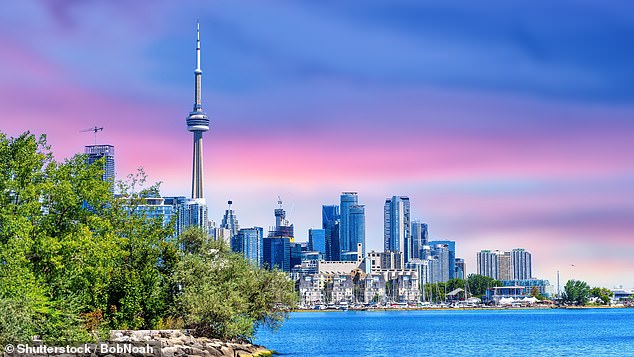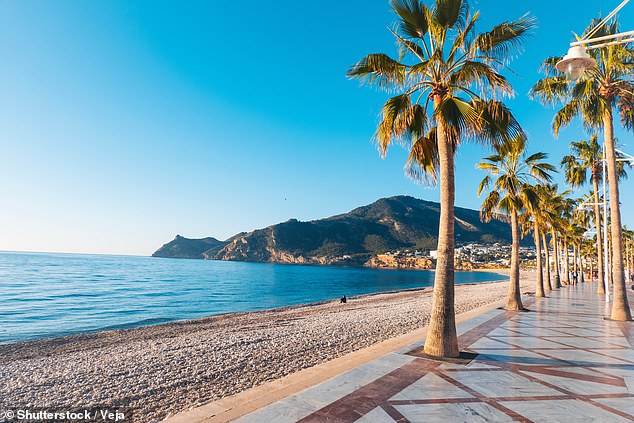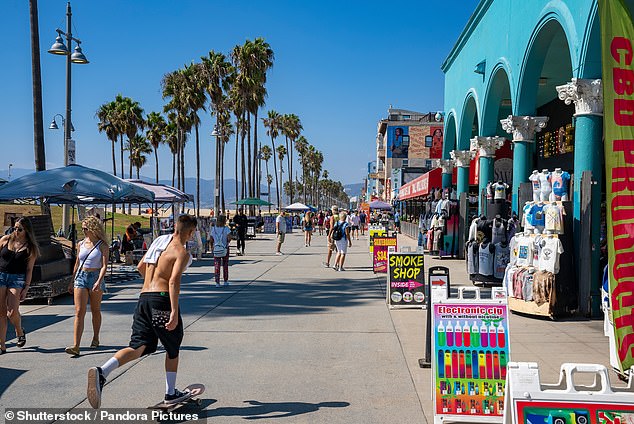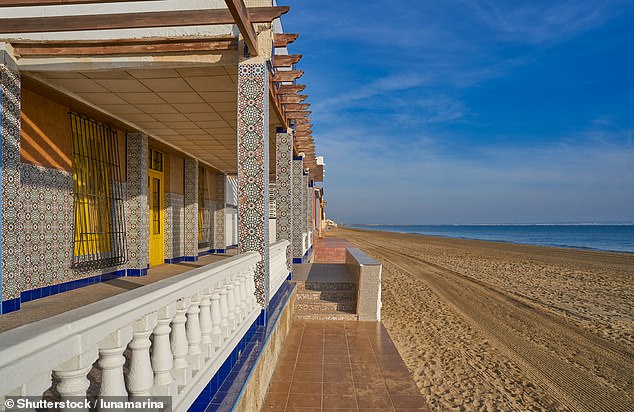Could Britain’s love affair with the Med finally be cooling off? According to new research, a raft of non European destinations have won our affections this summer.
Classic sun resorts across Italy, France, Spain and Portugal are becoming less popular, with tourists seeking their holiday kicks further afield, including in Thailand, Canada and the US.
Virgin Media 02 data suggests that visitors to Spain have plummeted by around 9% year-on-year – with protests against over-tourism amongst the factors that may be seeing UK holidaymakers jetting off in a different direction.
Another enduring favourite, France, has been eclipsed by the US this summer, which has commanded 17% of visitors compared to a hop across the Channel, where only 14% have travelled.
Greece and Portugal? They’re also down by 7% and 5% respectively, the new data suggests, with many dedicating their summer breaks to more far-flung places.
Many are making for Maple Leaf territory, with Canada now accounting for 9% of trips from the UK.
Elsewhere, the United Arab Emirates has enjoyed 8% of the British tourist pie, with Thailand and Australia both at 5%.
When it comes to last minute getaways though, it seems convenience is everything with resorts that are just a short hop away by plane still seeing the biggest numbers of Brits.

Swap the Costa del Sol for Canada? Brits have been heading further afield this summer, according to new research by Virgin Media 02 data (Pictured: Toronto)

Spain, where over-tourism protests have been taking place all year, is down in popularity by 9% amongst British tourists – but is still our favourite for a last-minute getaway (Pictured: Albir town in Alicante)
Almost 38% of us will take late breaks to Spain while Greece will see 25% and Italy 23%.
Christian Hindennach, Chief Commercial Officer at Virgin Media O2 said of the latest research: ‘As Brits explore new holiday spots beyond Europe, we’re proud to keep them connected wherever they may roam.’
After months of over-tourism protests across Spain, there was more bad news for Brits heading to our favourite holiday destination this week – after seven miles of Costa Blanca coastline was closed.
Tourists have been banned from going into the water because of rare sea creatures with a potentially-fatal sting.
Reg flags went up on beaches in the municipality of Guardamar del Segura just north of Torrevieja following the appearance of so-called blue dragons, which have been branded ‘the most beautiful killer in the ocean.’
The sea slug, also known as Glaucus atlanticus, feeds on the venomous cells of creatures like the deadly Portuguese man o’war, storing them within its body in concentrated doses.
This process concentrates the toxin, making the blue dragon’s sting far more potent than that of its prey.
Typical symptoms of the blue dragon’s sting include nausea, pain, vomiting and, in some cases, severe allergic reactions which can be fatal.

The USA has been more popular than France according to the new data, with 17 per cent heading Stateside, compared to just 14 per cent going across the Channel (Pictured: Venice Beach)
Guardamar del Segura’s mayor Jose Luis Saez, confirming the sea ban order yesterday which he indicated would remain in place until further notice, said on his official X account: ‘Red flag on the beaches of Guardamar.
‘Bathing is prohibited following the appearance on Vivers Beach of two specimens of Glaucus atlanticus, known as the Blue Dragon.’
He added: ‘We remind people that despite its bright and striking colour and it’s small 1.5 inch size, they should stay away from this animal because of its sting.
‘Guardamar del Segura Town Hall has has launched a preventive operation to detect possible specimens carried by ocean currents.
‘Town hall workers are closely following the evolution of the situation and will inform people about the different measures to be taken.
‘If you see one of these creatures don’t touch it, even with gloves on, alert lifeguards and other authorities.
‘If you get stung, wash the area affected with salt water and head to your nearest first aid point or health centre.
‘These creatures are poisonous and their stings can cause nausea, pain and vomiting.
‘For the time being and until further notice, bathing in the sea is prohibited.’

Deserted: Tourists have been banned from going into the water along an entire seven-mile stretch of Spain’s Costa Blanca because of rare sea creatures with a potentially-fatal sting (Pictured: Guardamar del Segura beach)
Vivers Beach, a natural stretch of coast south of the Segura River and north of La Babilonia Beach, was said to be full of people yesterday although less people than normal were in the sea defying the bathing ban order and risking heavy fines.
Lifeguards with loudhailers were expected to remind tourists and locals today about the prohibition according to local reports, although sunseekers will still be allowed to head to beaches even if they don’t take a dip in the sea.
Red flags went up at Santa Barbara beach in La Linea de la Concepcion near Gibraltar on Sunday after police received an emergency call about a blue dragon sighting and six were later found on the shoreline.
It was reopened to bathers the following day, with a yellow warning flag up instead of the red one.











